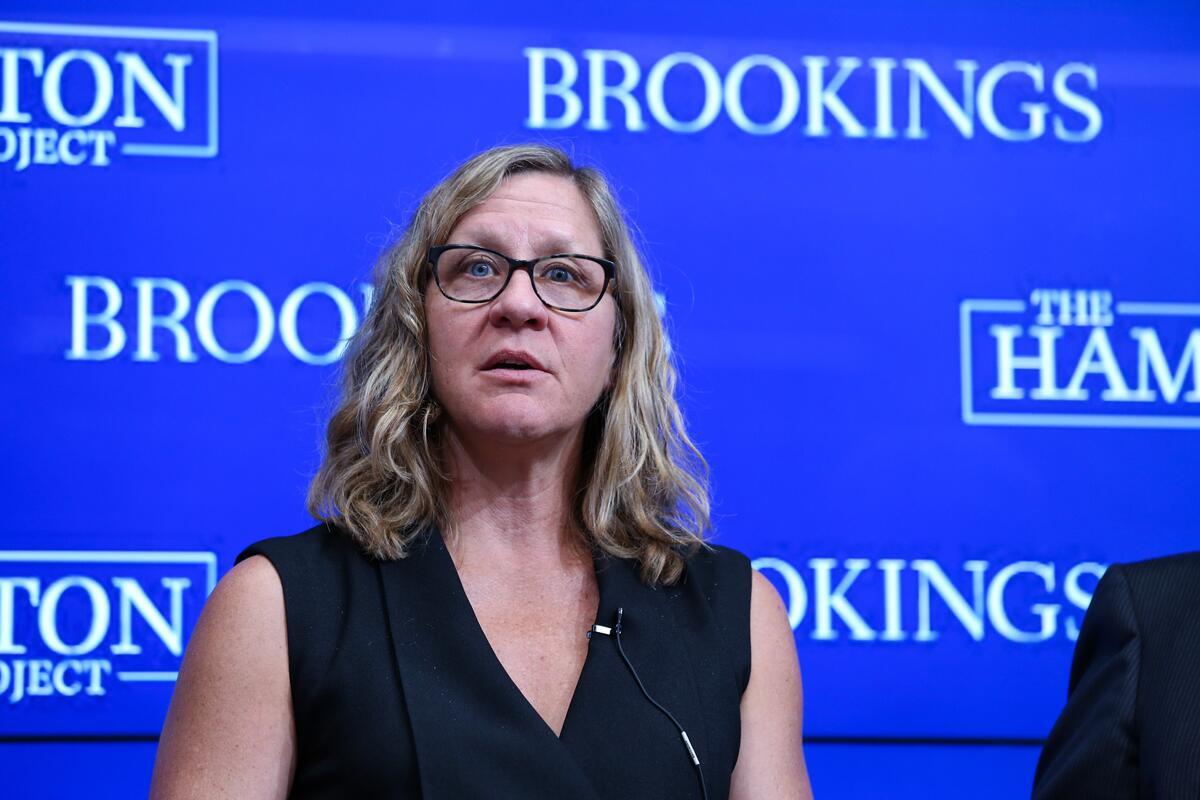Hilary Hoynes Awarded 2024 Daniel M. Holland Medal for Groundbreaking Work in Child Poverty

UC Berkeley Economics and Public Policy Professor Hilary Hoynes, an expert on child poverty and the social safety net, has been awarded the 2024 Daniel M. Holland Medal by the National Tax Association (NTA). The NTA’s most prestigious award recognizes Hoynes’ pioneering research into child poverty and the social safety net, which has influenced the field by offering new insights into the long-term benefits of social welfare programs. She is the second Berkeley economist to receive this honor and the third woman to receive it since 1993.
Professor Hoynes serves as the director of the Berkeley Opportunity Lab, a leading research hub for scholars at UC Berkeley dedicated to examining social and economic inequality in the U.S. She co-directs the James M. and Cathleen D. Stone Center on Wealth and Income Inequality, which investigates disparities in wealth and income. Hoynes’ career highlights include being selected to the National Academy of Sciences, the American Academy of Arts and Sciences, the National Academy of Social Insurance, and her recognition as a Fellow of the Society of Labor Economists.
Professor Hoynes spoke to Berkeley Social Sciences about the prestigious award and her research. The interview has been edited for clarity.
Tell us about your background and how you ended up at UC Berkeley.
Hilary Hoynes: I received my Ph.D. in economics from Stanford in 1992. My first faculty position was here at Berkeley where I joined the Department of Economics as an assistant professor. I moved to UC Davis as an associate professor in 2000, after not getting tenure at Berkeley. I was recruited back to Berkeley in 2013, where the Goldman School of Public Policy led my recruitment. I was appointed as the Haas Distinguished Chair in Economic Disparities and also appointed as professor of economics. I am now Chancellor’s Professor of Economics and Public Policy, and I am also director of the Berkeley Opportunity Lab and co-direct the Stone Center on Wealth and Income Inequality.
Tell us more about your current research on early access to the social safety net.
Hilary Hoynes: A hallmark of every developed nation is the provision of a social safety net — a collection of public programs that deliver aid to the poor. Because of their higher rates of poverty, children are often a major beneficiary of safety net programs. Throughout my career I have studied the social safety net and its impacts on families with children.
In my current research, I focus on the potential benefits of safety net programs for children over the long run. In my work, I have shown that having access to food stamps in early childhood, particularly prior to age 6, leads to improvements in adult outcomes, including higher education degrees and increased earnings; lower poverty and mortality; and fewer interactions with the criminal justice system. As a work in progress, I also examine the impacts of welfare reform in the 1990s on the next generation. The children who lived in households during this period of reform are now adults, and we examine their impacts on the labor market, income, health, fertility, marriage, criminal justice and neighborhood of residence in adulthood.
Tell us more about the Daniel M. Holland Medal.
Hilary Hoynes: The Holland Medal is awarded each year by the National Tax Association (NTA). The NTA is the leading association of scholars and professionals dedicated to advancing the theory and practice of public finance, including public taxing, spending and borrowing. As reported on the NTA website, “The Daniel M. Holland Medal was created in 1993 in memory of Dan Holland, a Professor of Economics at the Massachusetts Institute of Technology Sloan School of Management, and an internationally recognized researcher, teacher, and practitioner in public finance. Dan was a leading figure in the National Tax Association for many years, serving as president in 1988–1989 and as editor of the National Tax Journal for 25 years from 1966–1991.” A committee of NTA members constituted by the Board of Directors makes a formal nomination of the award recipient each year for approval by the board, and the medal is awarded at the Annual Conference on Taxation.
What is your reaction to being selected for the 2024 Daniel M. Holland Medal?
Hilary Hoynes: I was so honored to be selected for the Holland Medal. This is the highest recognition for public finance economists and the NTA is the national organization for economists studying governments. The list of prior recipients is extremely impressive. I joined the company of my Berkeley colleague Alan Auerbach, a Berkeley professor of law and economics (who won it in 2011). Notably, by my count, I am only the 3rd woman to receive the Holland Medal since 1993, the first year of the prize. Given that women continue to be underrepresented in economics (at UC Berkeley and nationally, this means a lot to me.
What do you think helped with your selection?
Hilary Hoynes: I have been working throughout my career on child poverty and the social safety net. My work has helped lead new inquiries into estimating the causal effects of the social safety net on the benefits of the social safety net in the long term. Along with this research, I have been involved in national service at a high level. I served on the Federal Commission on Evidence Based Policy Making and on the National Academy of Sciences Committee on Building an Agenda to Reduce the Number of Children in Poverty by Half in 10 Years.
